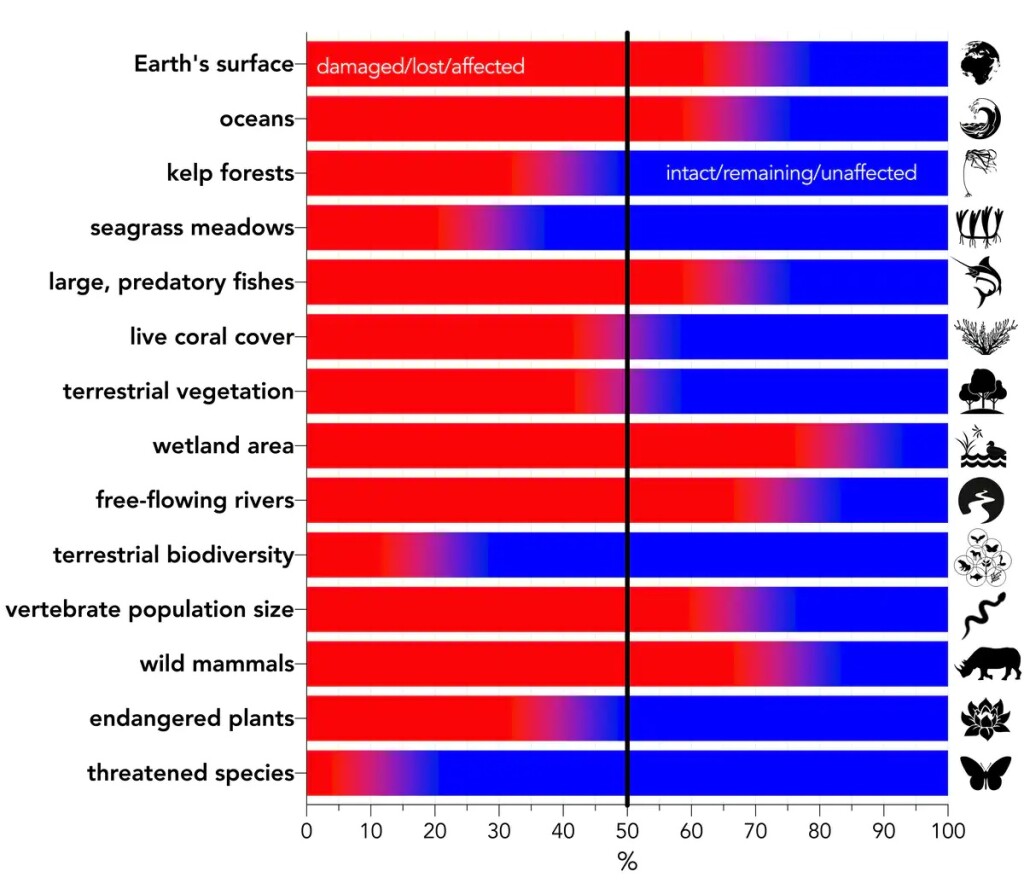Facing Our Collective Zombie-like Future: Solutions to Address Global Problems Head-on
Jan 27th, 2021 | By admin | Category: Environment/SustainabilityBy Suzanne York.
The threats to the planet by human actions have been studied and reported for decades. Almost every day now sees reports of the latest research on the fraying of planetary health, for nature and for humans. We can’t plead ignorance at destroying the Earth.One such study, released earlier this month, addresses the likely future trends in biodiversity decline, mass extinction, climate disruption and planetary toxification. The title of the paper says it all – Underestimating the Challenges of Avoiding a Ghastly Future.
If only more citizens, policymakers and leaders absorbed just the first few sentences of the study:
Humanity is causing a rapid loss of biodiversity and, with it, Earth’s ability to support complex life. But the mainstream is having difficulty grasping the magnitude of this loss, despite the steady erosion of the fabric of human civilization. While suggested solutions abound, the current scale of their implementation does not match the relentless progression of biodiversity loss and other existential threats tied to the continuous expansion of the human enterprise.
The scientists clearly state that this isn’t meant to be another depressing report or “a call to surrender.” Their aim is “to provide leaders with a realistic “cold shower” of the state of the planet that is essential for planning to avoid a ghastly future.”
We stand a good chance at avoiding that awful future if we implement policies, initiatives and ideas that we know work, ones grounded in rights, respect and equity. The world is not starting from scratch. However, we need to acknowledge and understand this situation that is steadily, for the most part, getting worse.
The planet is nearing 8 billion human inhabitants, many of whom in the ‘Global North’ who are overconsuming precious resources, and many in the ‘Global South’ who want to replicate a middle class lifestyle and need to rise above poverty.

Major environmental-change categories expressed as a percentage relative to intact baseline. Red indicates percentage of category damaged, lost or otherwise affected; blue indicates percentage intact, remaining or unaffected. Frontiers in Conservation Science
Several of the scientists noted the impact of population growth. Writing for the online academic news site The Conversation, they wrote:
The human population has reached 7.8 billion – double what it was in 1970 – and is set to reach about 10 billion by 2050. More people equals more food insecurity, soil degradation, plastic pollution and biodiversity loss.
High population densities make pandemics more likely. They also drive overcrowding, unemployment, housing shortages and deteriorating infrastructure, and can spark conflicts leading to insurrections, terrorism, and war.
What is frustrating about all of this is that the world knows what to do, and the time to take decisive action is rapidly dwindling as we lament the state of things, argue about who is at fault and undertake further studies.
The solutions are grounded in human rights and nature’s rights and require integrating population, health, environment, education and sustainable jobs, amongst other positive efforts. Part and parcel of this is reducing high levels of consumption, especially of fossil fuels and plastics.
The following solutions were put forth by the experts:
- abolishing the goal of perpetual economic growth
- revealing the true cost of products and activities by forcing those who damage the environment to pay for its restoration, such as through carbon pricing
- rapidly eliminating fossil fuels
- regulating markets by curtailing monopolization and limiting undue corporate influence on policy
- reigning in corporate lobbying of political representatives
- educating and empowering women across the globe, including giving them control over family planning.
The authors call for avoiding the tendency to sugar-coat the overwhelming challenges ahead and “tell it like it is.” Kudos to them for calling out the absurdity of perpetual economic growth and for including some often untouchable concepts such as the role of corporations in furthering this mentality.
It is hubris, and selfish, to think we can simply wait for some promised future salvation to make our problems disappear at the touch of a button. Current generations need us to take action now before we cross too many irreversible planetary thresholds. If the current situation has taught humans anything (well, most of us), it is that we can change for the greater good when called to do so. The planet is sending us major signals that we need to continue down this path of change and live in balance with the web of life. Do we really want to risk Mother Nature hitting us over the head with what happens if we don’t alter our behavior?
Suzanne York is Director of Transition Earth.

![[photo: Creative Commons/NOAA]](http://populationgrowth.org/wp-content/uploads/2021/01/California_Drought_Dry_Riverbed_2009-300x225.jpg)